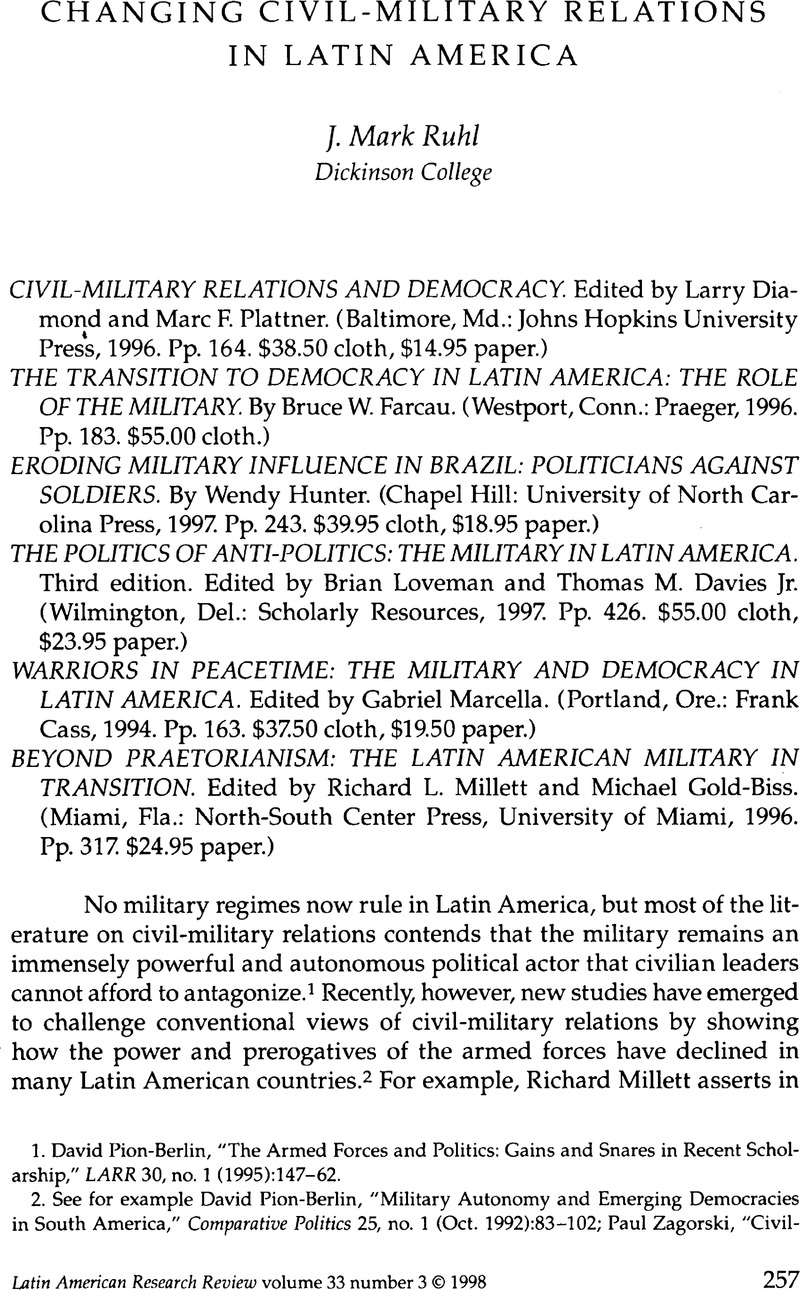Published online by Cambridge University Press: 05 October 2022

1. David Pion-Berlin, “The Armed Forces and Politics: Gains and Snares in Recent Scholarship,” LARR 30, no. 1 (1995):147–62.
2. See for example David Pion-Berlin, “Military Autonomy and Emerging Democracies in South America,” Comparative Politics 25, no. 1 (Oct. 1992):83-102; Paul Zagorski, “Civil-Military Relations and Argentine Democracy: The Armed Forces under the Menem Government,” Armed Forces and Society 20, no. 3 (Spring 1994):423-37; Richard L. Millett, “An End to Militarism? Democracy and the Armed Forces in Central America,” Current History 94, no. 589 (Feb. 1995):71-75; Wendy Hunter, “Politicians against Soldiers: Contesting the Military in Postauthoritarian Brazil,” Comparative Politics 27, no. 4 (July 1995):425-45; and J. Mark Ruhl, “Redefining Civil-Military Relations in Honduras,” journal of Interamerican Studies and World Affairs 38, no. 1 (Spring 1996):33–66.
3. Thomas E. Skidmore, The Politics of Military Rule in Brazil, 1964–1985 (New York: Oxford University Press, 1987).
4. For a thorough discussion of the issue of military missions, see Wendy Hunter, State and Soldier in Latin America: Redefining the Military's Role in Argentina, Brazil, and Chile (Washington, D.C.: United States Institute of Peace, 1996).
5. See Deborah L. Norden, Military Rebellion in Argentina: Between Coups and Consolidation (Lincoln: University of Nebraska Press, 1996).
6. There will always be considerable subjectivity involved in measuring the military's political power and autonomy Use of a common standard such as Alfred Stepan's indicators of military prerogatives might help narrow disagreements in the future. See Stepan, Rethinking Military Politics: Brazil and the Southern Cone (Princeton, N.J.: Princeton University Press, 1988), 94–97.
7. On the importance of process variables in the current literature on democratization, see Doh Chull Shin, “On the Third Wave of Democratization: A Synthesis and Evaluation of Recent Theory and Research,” World Politics 47, no. 4 (Oct. 1994):135–70.
8. See Samuel P. Huntington, The Third Wave: Democratization in the Late Twentieth Century (Norman: University of Oklahoma Press, 1991), 251–53.